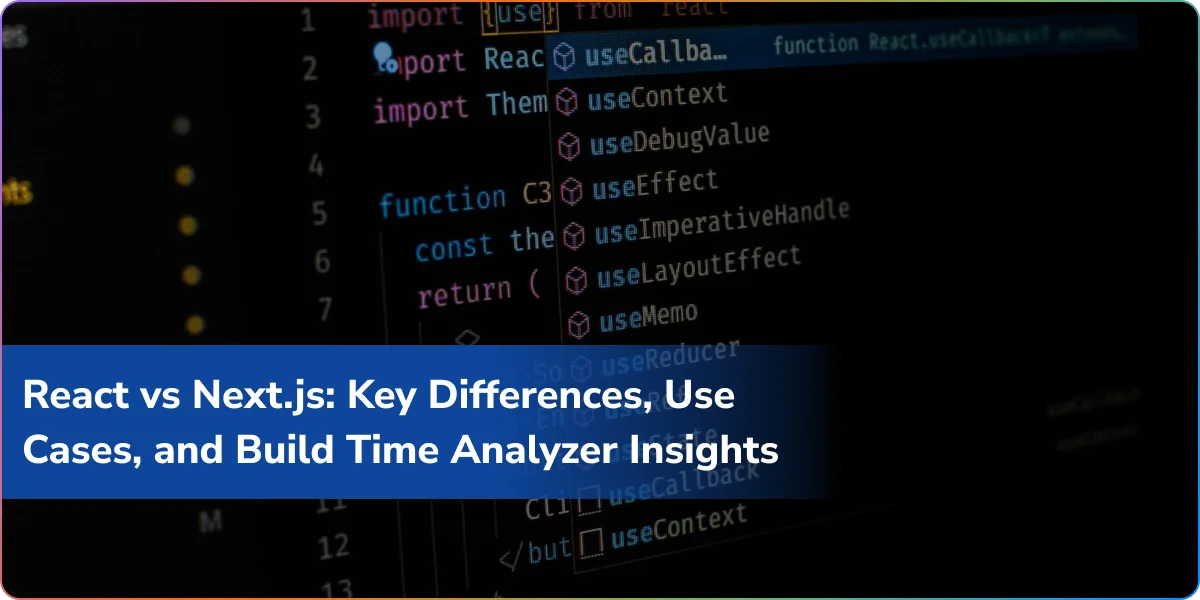In 2025, there will be a significant increase in demand for scalable and high-performing front-end development, and Angular frameworks will continue to lead the way. As applications become more complex, developers rely on pre-built elements, such as UI libraries and component packs, to simplify development and reduce redundancy.
In this blog, we will discuss the top Angular component library choices in 2025, such as Telerik Angular, trending AngularJS component libraries, and the applicability of employing ASP.NET Core 8 and Angular seventh Edition for enterprise-level applications.
Whether you are developing for the web or seeking details about the Angular framework for mobile development, this informative guide will assist you in choosing the correct tools to enhance productivity as well as user experience.
Why Angular Frameworks Are Still Doing Well in 2025
Most people ask: “Is Angular a framework or library?” Angular is a full-featured framework by Google. It provides strong architecture, dependency injection, two-way data binding, and CLI support, making it suitable for complex enterprise applications.
With ongoing updates and support for utilities such as ASP.NET Core 8, Angular is a trusted option for both web and mobile app development. Indeed, Angular frameworks are used extensively in financial services, healthcare platforms, real-time dashboards, and scalable enterprise SaaS products.
Key Benefits of Using Angular Component Libraries
Angular component libraries save time, ensure consistency in design, and enhance scalability. The following are some key advantages:
- Faster Development: Ready-to-use UI components and themes minimize the effort to create from scratch.
- Customization: The majority of libraries provide theming, responsive layouts, and custom variations of components.
- Cross-Browser Compatibility: The libraries guarantee that the components are compatible across current browsers.
- Mobile Responsiveness: A majority of libraries are optimized for mobile-first designs.
Best Angular component library choices in 2025
1. Telerik Angular
Telerik Angular by Progress is one of the most feature-rich commercial UI libraries that offers 100+ natively developed and customizable components for Angular.
Key Features:
- Rich data grid, scheduler, and charts
- Complete accessibility and localization support
- Material and Bootstrap themes
- Professional-grade support
Telerik Angular remains a popular choice for enterprise-level applications and developers working with ASP.NET Core 8 and Angular seventh edition together.
Use Case:
Best suited for corporate projects that require performance, big data visualization, and scalable design.
2. Angular Material (Angular UI Library)
Angular Material is still the most widely used open-source Angular UI library. It has been developed by the Angular team itself and contains a comprehensive set of components compliant with Google’s Material Design specifications.
Key Components:
- Buttons, cards, sliders
- Data tables with filtering, pagination, and sorting
- Dialogs, snack bars, side navigation
Highlights:
- Integrated accessibility (a11y)
- Theming and dark mode support
- Community-driven
Angular Material is perfect for teams that value UI/UX uniformity without any third-party reliance.
3. NG-ZORRO (Ant Design for Angular)
If you enjoy the streamlined UI of Ant Design from the React ecosystem, NG-ZORRO is the Angular equivalent. It’s used extensively in Asian enterprise apps.
Top Features:
- 70+ top-notch components
- Internationalization (i18n)
- Angular SSR and mobile responsiveness support
NG-ZORRO is an ideal choice for teams creating internal tools, admin panels, or applications that need a tidy and trendy UI.
4. PrimeNG
PrimeNG is the most usable Angular UI framework. It supports over 90 UI components and constant updates.
Key Strengths:
- Rich themes and templates
- Rich form controls and table components
Theme Designer and PrimeFlex for layout design
PrimeNG also seamlessly integrates with the Angular framework for mobile user interfaces, providing touch-optimized components.
5. Nebular
Nebular is a feature-rich UI library that’s specifically made for admin dashboards. It’s Eva Design System-based and supports Angular 15+ versions efficiently.
Best Features:
- Social login-enabled auth module
- Intelligent layout system
- Dark mode and customizable themes
Nebular offers a modern look and backend integrations, making it an effective choice for dashboards and SaaS apps.
6. Clarity Design System by VMware
VMware’s Clarity Design System comes with a best-of-breed Angular component library that is appropriate for enterprise-level products, with an exquisite balance between design and code organization.
Benefits:
- Reusable UI components
- Light and dark theme support
- Accessibility-compliant and scalable
Clarity is perfect for developers developing for regulated industries such as healthcare, banking, and government.
7. Onsen UI – Angular Framework for Mobile
Need an Angular framework for mobile? Onsen UI enables you to develop hybrid mobile apps with Angular.
Key Features:
- Native-looking UI components
- Cordova and Capacitor support
- iOS and Android style switching
With Onsen UI, developers can code mobile applications with Angular but get near-native performance.
8. DevExtreme Angular Components
Developed by DevExpress, DevExtreme Angular contains more than 65 responsive UI components.
Key Features:
- Powerful charting, pivot tables, and data grids
- High-performance rendering
- Excel/PDF export capabilities
DevExtreme is widely utilized in financial software, BI dashboards, and enterprise data-driven applications.
9. Syncfusion Angular UI Components
Syncfusion offers a rich collection of 80+ Angular components utilized in real-time and data-intensive applications.
Why Use It:
- Real-time charts, heatmaps, and data visualization
- Strong PDF and Excel integrations
- Supported in ASP.NET Core 8 and Angular seventh Edition
Syncfusion is ideal for .NET developers developing Angular frontends with Microsoft-backed technologies.
10. Angular Bootstrap (NG Bootstrap)
If you enjoy Bootstrap’s grid and utility classes, NG Bootstrap provides Bootstrap 5 UI components to Angular. Features: Lightweight, modular components. Compatible with new Angular CLI. Preserves Bootstrap look and feel. This library is well-loved among startups and MVPs seeking speed and simplicity.
Top AngularJS Component Libraries (Still Valid in Legacy Apps)
While AngularJS (the original 1.x) is reaching end-of-life, some AngularJS component libraries continue to be relevant in legacy or internal applications.
- UI Bootstrap: Bootstrap components in AngularJS
- Angular Material for AngularJS: Still actively maintained for prior versions
- Angular UI Grid: Robust data grid for AngularJS
The libraries sustain legacy apps with a view toward migration to the current Angular.
Are you looking to hire Angular developers who are experts in the best component libraries of 2025? Connect with us today.
Selecting the Best Angular Component Library for Your Project
When choosing the optimal Angular component library, take into account the following:
Project Size & Scope
- For enterprise-level applications with a large size, choose Telerik Angular, PrimeNG, or Syncfusion.
- For MVPs or startups, Angular Material or NG Bootstrap are excellent, lightweight options.
Technology Stack
If you have ASP.NET Core 8 and Angular 7th Edition, pick libraries such as DevExtreme or Telerik Angular that play well together.
Design Preference
- Desire Material Design? Opt for Angular Material or Clarity.
- Like Ant Design’s look? Use NG-ZORRO.
Mobile Development
For mobile-first applications, consider Onsen UI as a stable Angular framework for mobile apps.
Conclusion
Picking the top Angular component library in 2025 can greatly boost your app’s performance, UI uniformity, and dev productivity. Whether you prefer the enterprise-grade power of Telerik Angular, the flexibility of Angular Material, or the legacy compatibility of AngularJS libraries, the right tools depend on your project scale, team skillset, and design goals.
Do you want to hire expert Angular developers who specialize in the top component libraries of 2025? Our team at Logixbuilt Solutions can help you craft high-performance Angular applications with the latest tools and trends. Contact us today for a free consultation
FAQ’s
1. What is the best Angular component library in 2025?
In 2025, the top Angular component libraries are Telerik Angular, NG-ZORRO, PrimeNG, and Angular Material. The libraries provide powerful UI tools, responsive components, and compatibility with current Angular frameworks.
2. Is Angular a framework or a library?
Angular is a complete framework, not a library. It provides a complete solution for developing dynamic single-page applications with inbuilt routing, HTTP client, form handling, and UI components.
3. Is it possible to use Angular in mobile app development?
Yes, you can use Angular frameworks for mobile by pairing Angular with frameworks such as Ionic or NativeScript so that you can develop cross-platform mobile applications using web technologies.
4. How is AngularJS different from Angular?
AngularJS is the original JavaScript-based (1.x) version, whereas Angular (2+) is a total rewrite with TypeScript. New Angular UI libraries do not support AngularJS anymore, so migration to Angular 2+ is advisable for improved performance and support.
5. How can Logixbuilt Solutions assist with Angular UI library integration?
We provide custom Angular development services as well as integrating top-rated Angular component libraries such as Telerik Angular, Angular Material, and PrimeNG.



